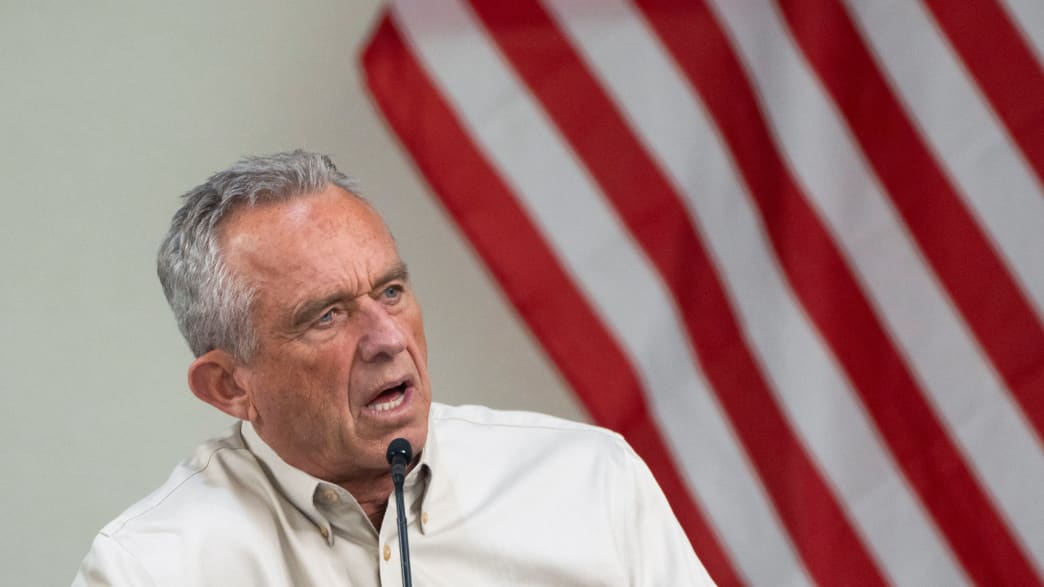Congress Advances Measure to Prevent Government Shutdown Ahead of Deadline
Congress passed a critical measure just before a looming Oct. 1 deadline, preventing a partial government shutdown and securing federal funding until Dec. 20.
The continuing resolution (CR), supported by House Speaker Mike Johnson, received broad bipartisan backing, with 341 members voting in favor, but it sparked notable dissent within Republican ranks, as Fox News reports.
In total, 132 Republicans joined Democrats in passing the CR, while all 82 "no" votes came from within the Republican Party.
The urgency stemmed from the inability of Congress to make significant progress on the budget for the upcoming fiscal year, which has been a contentious issue throughout the 118th Congress.
The measure now heads to the Senate, where it's expected to pass before being signed by President Joe Biden.
Republican Divide over Funding Measures
The passing of the CR marks a pivotal moment for Johnson, whose predecessor was ousted largely due to disagreements over federal funding. Johnson managed to navigate his party’s internal conflicts to secure enough votes, despite opposition from fiscal conservatives.
Some Republicans expressed frustration with the short-term nature of the funding extension. Rep. Keith Self (R-TX) voiced concerns about pushing the debate further into the year. "We are condemned to a Christmas lame-duck omnibus," Self remarked, reflecting concerns about the potential for a massive spending package during the holiday season.
Rep. Ralph Norman (R-SC) echoed these concerns. "I think that’s the preview of coming attractions, unfortunately," he said, indicating a belief that Congress would be forced into last-minute compromises later in the year.
Conservatives Push for Longer-Term Solutions
Fiscal conservatives within the Republican Party were particularly dissatisfied with the decision to delay the debate over spending until December. Many had hoped for a more conservative resolution that would extend funding into March and include provisions like banning noncitizens from voter registration. However, this proposal failed due to opposition from 14 Republican members, forcing Johnson and his team to consider alternatives.
One of the primary objections to the CR came from those who feared it would lead to an "omnibus" spending bill—an all-encompassing package often negotiated behind closed doors during the holiday season. Such bills have been criticized for combining multiple spending priorities without adequate scrutiny.
Johnson tried to assuage these concerns. "There won't be a Christmas omnibus," he assured reporters. "Somebody asked me in the hallway a little while ago, ‘Will there be mini-buses?’ We don't want any buses. We're not going to do any buses."
New Security Funding Amid Political Tension
In addition to the temporary extension of government funding, the CR included a $231 million boost for the U.S. Secret Service. This allocation came in response to two assassination attempts against former President Donald Trump, underscoring the heightened political tension and security concerns within the country.
Despite the inclusion of this additional funding, the broader debate over spending remains unresolved. Democrats and the White House have expressed support for the CR, but the path forward remains uncertain as Congress prepares for further negotiations in December.
What Comes Next for the CR?
As the CR moves to the Senate, the political landscape suggests a relatively smooth passage. Both Democrats and Republicans in the upper chamber have signaled their support for avoiding a shutdown, and the White House has also indicated its approval of the measure.
However, the short-term nature of the CR means that the underlying issues over fiscal year 2025 budgeting remain unresolved. The next few months will likely see renewed debates over spending priorities, with the Dec. 20 deadline looming as another potential flashpoint for lawmakers.
Conclusion: Another Shutdown Crisis Avoided -- For Now
With the passage of the continuing resolution, Congress has once again managed to avert a government shutdown, but the solution is only temporary. The House vote, which saw 341 lawmakers in favor and 82 Republicans opposed, reflected the divided nature of the debate over federal spending.
While the CR prevents an immediate crisis, the concerns raised by fiscal conservatives suggest that Congress will face significant challenges when it reconvenes to address the budget in December. The additional funding for the U.S. Secret Service, included in response to recent assassination attempts, further highlights the complex nature of this legislation.
Ultimately, the passage of this CR represents a temporary fix, with more contentious debates looming on the horizon.



